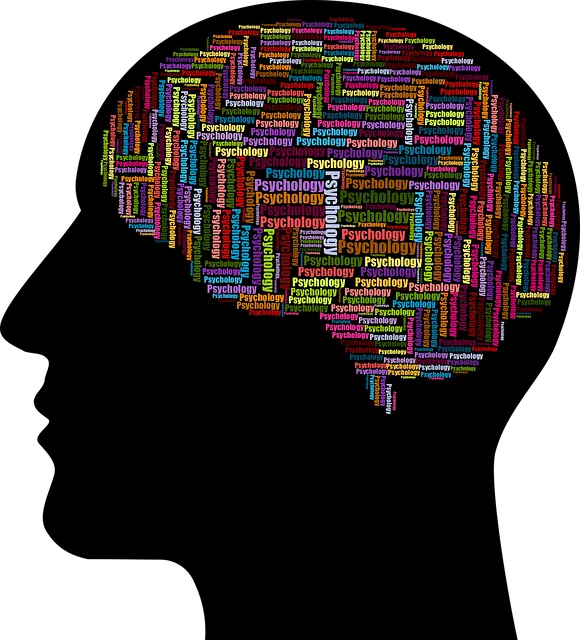The Kaiser Permanente training programs in Westminster utilize interactive workshops and evidence-based practices for mental wellness self-assessment tools, empowering individuals to recognize and manage stress, anxiety, and depression early on. Effective tools should be comprehensive yet user-friendly, capturing various mental health indicators and integrating empathy building strategies. Key steps for development include identifying focus areas, conducting needs assessments, collaborating with stakeholders, implementing structured training modules, gathering feedback, and refining based on data and participant insights. Success is measured through user feedback, data analytics, public awareness campaigns, emotional intelligence integration, and compassion cultivation practices.
Mental wellness self-assessment tools play a pivotal role in fostering individual awareness and promoting proactive mental health management. This article explores the development of such tools, drawing insights from the successful Kaiser Permanente approach. We delve into identifying essential components for effective tool creation, highlighting the integration of comprehensive training programs tailored to Westminster communities.
Through a step-by-step guide, we navigate the process, emphasizing measurement strategies and continuous improvement techniques for optimal impact. By emulating best practices, this resource aims to empower individuals in Westminster with the knowledge and skills for enhancing their mental wellness.
- Understanding Mental Wellness Self-Assessment: The Kaiser Permanente Approach
- Identifying Key Components for Effective Tools Development
- Integrating Training Programs in Westminster: A Step-by-Step Guide
- Measuring Success and Continuous Improvement Strategies
Understanding Mental Wellness Self-Assessment: The Kaiser Permanente Approach

Mental wellness self-assessment tools are invaluable for individuals to gauge their emotional and psychological well-being. One renowned approach is that employed by Kaiser Permanente training programs in Westminster, which focuses on empowering individuals to take an active role in managing their mental health. This method encourages self-reflection and fosters skills like empathy building and inner strength development.
Through interactive workshops and evidence-based practices, these programs teach individuals to recognize signs of stress, anxiety, or depression early on, enabling prevention strategies to be implemented effectively. By integrating these assessments into daily routines, folks can develop a deeper understanding of their emotional landscape, allowing them to navigate life’s challenges with resilience and adaptability.
Identifying Key Components for Effective Tools Development

Developing effective mental wellness self-assessment tools requires a strategic approach, especially when tailored for professionals like those in training programs at Kaiser Permanente Westminster. The key components include comprehensive yet user-friendly assessments that capture a wide range of mental health indicators. These should go beyond basic symptoms to assess factors such as coping mechanisms, social support networks, and resilience – all vital elements influencing overall wellness.
Furthermore, integrating Empathy Building Strategies into these tools can foster deeper connections between professionals and clients, enhancing the assessment process. By incorporating strategies that promote Anxiety Relief and effective Risk Management Planning for Mental Health Professionals, the self-assessment becomes a powerful resource not just for evaluation but also for supporting mental health practitioners in their daily practice.
Integrating Training Programs in Westminster: A Step-by-Step Guide

Integrating Kaiser Permanente training programs in Westminster can be a transformative process for enhancing mental wellness self-assessment tools. Start by identifying key areas of focus, such as emotional regulation, resilience building, and community outreach program implementation. Conduct an initial needs assessment to understand the specific challenges and goals within your community.
Next, collaborate with local stakeholders and healthcare professionals to design tailored training modules that address these areas. Ensure these programs are inclusive and accessible to all demographics. Implement the training using a step-by-step approach: first, introduce foundational concepts, followed by hands-on workshops, and conclude with ongoing support and evaluation. Regularly gather feedback from participants to refine and improve the program’s effectiveness.
Measuring Success and Continuous Improvement Strategies

Measuring success and implementing continuous improvement strategies are vital components of developing effective mental wellness self-assessment tools, as exemplified by Kaiser Permanente training programs in Westminster. These initiatives prioritize user feedback and data analytics to gauge tool efficacy. By assessing user engagement, satisfaction levels, and clinical outcomes, developers can refine the assessment process, ensuring it aligns with evolving psychological research and best practices.
Public Awareness Campaigns Development, Emotional Intelligence, and Compassion Cultivation Practices play a significant role in this process. Regular public awareness campaigns help educate users about mental wellness and the importance of self-assessment. Incorporating emotional intelligence principles into the tool allows for more nuanced interpretations of results, fostering empathy and understanding. Finally, compassion cultivation practices can enhance the user experience by promoting a sense of safety and support, encouraging individuals to engage honestly with their mental health assessments.
The development of mental wellness self-assessment tools, as demonstrated by Kaiser Permanente’s approach and integrated with effective training programs in Westminster, is a multifaceted process. By identifying key components and implementing continuous improvement strategies, these tools can enhance individuals’ understanding of their mental health and guide them towards necessary support. The success of such initiatives lies in combining evidence-based methods with practical training, ensuring accessibility and effectiveness in promoting overall well-being within communities like Westminster.






